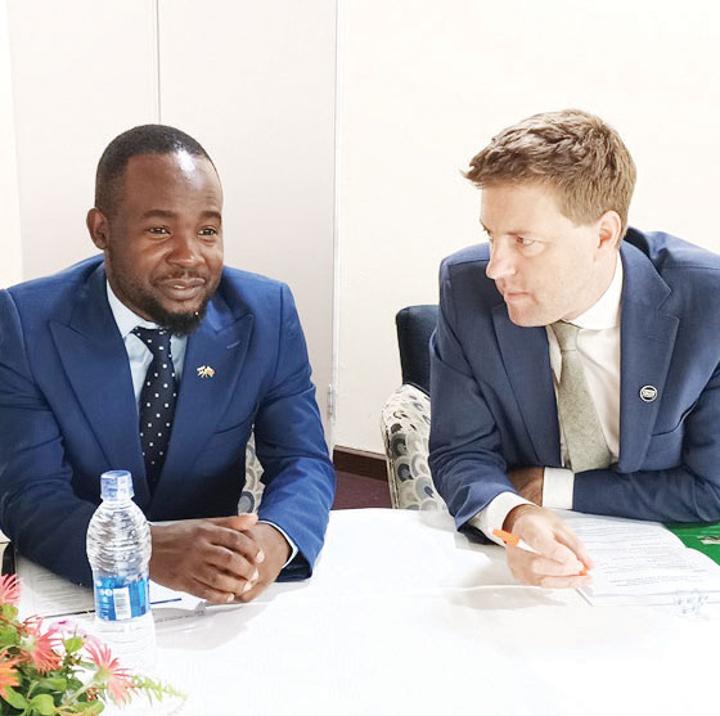Africa-Press – Malawi. About 73 in every 100 Malawians are swimming in abject poverty, living below $1.90 (about K1,968) per day, a new Malawi Poverty Assessment Report by the World Bank has revealed. That is to say only 27 in every 100 Malawians can afford to raise K2,000 in a day.
The report titled ‘Poverty Persistence in Malawi: Climate Shocks, Low Agricultural Productivity and Slow Structural Transformation’, released in Lilongwe Tuesday says the situation is not different from a decade ago. According to the report, Malawi’s poverty rate is the second highest among the poorest countries in sub- Saharan Africa.
“Malawi remains a country of grinding, existential poverty that has shown none of the meaningful progress its sub-Saharan peers have demonstrated over the last 15 years. About half the population of 19.1 million people lives in poverty, and nearly three-quarters live on less than $1.90 per day.
“The picture is not uniformly grim, since northern regions have achieved some reductions in poverty. But an impoverished Malawian still lives a tough life of low incomes, precarious dwellings, minimal education and very little ability to handle shocks,” the report says.
According to the report, poverty in Malawi is high, persistent and exhibits important heterogeneity across the country. “In the last decade, while some people escaped poverty, others fell into poverty, in part due to recurring climate shocks. Weak economic growth and a continuous increase of the population have contributed to the stagnation of the farm sector.
“Slow growth of the nonfarm sector, which was unable to absorb the surplus of labour resulting from the population growth, also contributed to the deceleration of migration to urban areas,” the report says.
On the other hand, the report says poverty levels have decreased significantly in rural areas in the Northern and Southern regions of the country. It says people who escaped poverty included those who moved from agriculture into ganyu, household businesses and salaried employment and those that improved their levels of education.
Furthermore, the report notes that for every three Malawians that moved out of poverty between 2010 and 2019, four fell back due to the impact of weather shocks. World Bank Country Manager for Malawi, Hugh Riddell, described the report as a call to action, saying Malawi’s poverty remains stubbornly high.
“Climate shocks, high fertility and low growth are key factors. While we see a significant shift out of agriculture over the last decade, constraints to starting household business are high and the informal sector has not delivered on income generation,” Riddell said.
The report has since recommended a stronger focus on enhancing agricultural productivity and improving non-farm employment options. According to the World Bank, the latter requires redoubling efforts to support private sector-led investment and job creation, including in growing urban areas.
Finance Minister, Sosten Gwengwe, said the title and contents of the report are a reality check and a reminder of the tough road that Malawi has travelled in the past decade, noting that they are certainly not a cause for joy or celebration.
Gwengwe added that the report “rightly notes” that it is imperative for Malawi to have pro-poor livelihood options, both in the agriculture sector where most of the poor currently generate a livelihood and in other sectors.
“It also notes that this can be done by increasing agricultural productivity to enhance the earnings of rural households through diversification within agriculture as well as promotion of nonfarm employment options.
“I note that this recommendation is totally consistent with the MW2063 and the Malawi 2063 first Implementation Plan whose first pillar places emphasis on agricultural productivity,” Gwengwe said.
He further agreed with the World Bank that given the current situation, government has no choice but to scale up efforts to support the private sector to create jobs and make the business environment for small and medium scale enterprises conducive.
“However, where we differ is whether in pursuit of this goal, government should deliberately target and incentivise rural-urban migration.
“My point of departure is the realisation of the lack or constrained capacity of our urban councils to provide basic municipal services. In the MW2063, we have identified urbanisation as a pillar but promote the notion of secondary cities in order not to have overcrowded cities,” Gwengwe said.
For More News And Analysis About Malawi Follow Africa-Press






